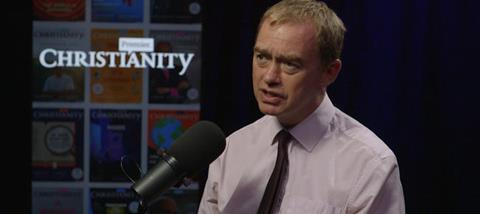
I am used to governments doing things that I don't like. Sometimes they do things that I really don't like; but I think it is vital to accept that wrong decisions (i.e. all decisions with which I disagree...) can nevertheless be honourable decisions. Normally.
Recently, in the middle of a global pandemic and failing Brexit talks, the PM has decided to abolish the Department for International Development (DFID) and merge it with the Foreign Office. Its work – and its budget – will be subsumed into that department’s work promoting the UK’s interests overseas, through trade and diplomacy.
In government, every decision has more than one eye on the message that it sends, and the point being made here is that Britain will look after itself first. If spending money on overseas aid does not shore up Britain’s position or give us some advantage, then it should not be a priority.
I do not pretend that the workings of DFID have been pure and perfect since it was established in 1997. It is clear that money has been spent unwisely and inflexibly, sometimes in the wrong place, and because each budget is allocated annually, it has often been hurriedly parcelled out at the end of the year.
But similar criticism could be levelled at spending on the NHS, education, and all our public services in the UK. What’s more, scrutiny has improved and the principle has been clear: the Department’s purpose has been to promote sustainable development and eliminate world poverty. Its website states that it aims to tackle “the global challenges of our time including poverty and disease, mass migration, insecurity and conflict” and to build “a safer, healthier, more prosperous world for people in developing countries and in the UK too.”
The work of DFID has given Britain influence abroad in terms of soft power, but more importantly it has been the outworking of our national conscience. We support poorer countries because we are a rich nation and can afford to do so, and because we have not shaken off the conviction from our Christian heritage that tells us that our neighbour is everyone. Each person on this planet has been made in the image of God, and those with plenty have a duty to use some of their resources to help those without.
But Johnson and Cummings want to ensure that money spent abroad will only be given as a tit for tat. We will only offer aid if we are going to get something back in return. What message does this give out about the type of country we are?
This move is the opposite of ‘virtue signalling’. It is the ultimate in ‘vice signalling’. It is further pulling up the drawbridge of ‘Fortress Britain’. Johnson’s rhetoric is all about making sure Britain is not taken advantage of and treated like “some giant cashpoint in the sky”.
But instead this is likely to make people think less well of Britain and its current leadership. And rightly so. No less than three former Prime Ministers, including David Cameron, as well as former Conservative Development Secretaries, have weighed in against this decision.
Former Labour PM Gordon Brown said: “The UK’s pathbreaking commitment to ending world poverty yields far-reaching benefits and its aid program is one of its most valuable global assets.” In December when the idea was being mooted, one hundred aid charities joined together to warn that the proposed abolition of DFID “suggests we are turning our backs on the world’s poorest people, as well as some of the greatest global challenges of our time: extreme poverty, climate change and conflict.”
This move is designed to make people like me upset. And job done. It is another battle in the culture wars. Johnson may lock up the bloke caught weeing on the memorial to the police officer murdered at the gates of Parliament, but he is simultaneously nodding to the man’s mates, who don’t want to see British money spent on foreigners.
Indeed, some populist commentators have made clear that they don’t even want their tax money spent on providing meals to hungry British children during the school holidays, let alone hungry children in other parts of the world. This announcement is designed to placate them: ok, we probably ought to feed our own kids, but don’t worry, we will stop feeding foreign ones instead.
Our economy is struggling. The Government wants to make clear that we are looking after our own. But in doing so it sends a message that Britain is becoming insular, heartless and irrelevant. And it forgets two other vital principles from our Christian heritage. That of grace: a gift of something perhaps undeserved but freely given. And that of service: looking after those less fortunate than ourselves.
Which type of Britain do we want to belong to as we go it alone after Brexit? Callous or gracious? For me the answer is clear.
Tim Farron is the MP for Westmorland and Lonsdale and former leader of the Liberal Democrats
Premier Christianity is committed to publishing a variety of opinion pieces from across the UK Church. The views expressed here do not necessarily represent those of the publisher


























